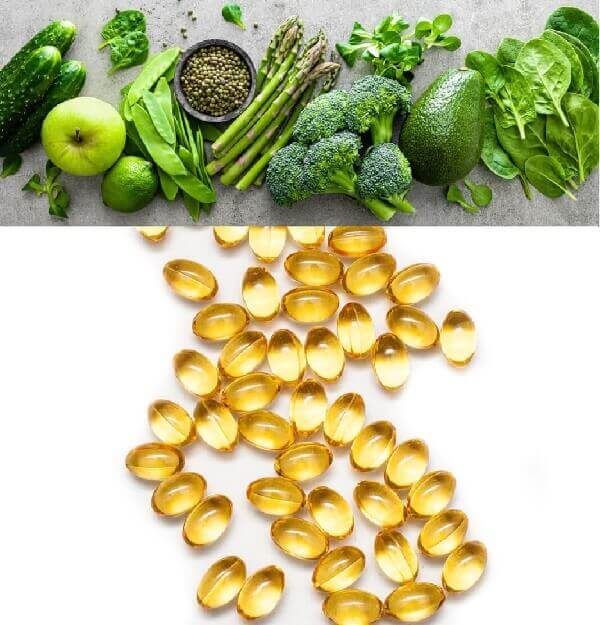Nutritional supplements play a role in slowing the progression of dry age-related macular degeneration (AMD) to late-stage AMD.

MDeyes delivers the complete AREDS 2 proven low zinc formula, including the specific quality ingredients FloraGLO Lutein and OPTISHARP Zeaxanthin, in a convenient once-daily capsule. The packaging helps with compliance by calendar labelling on the blister foils.

AREDS antioxidant supplements remain the most proven way of slowing progression to late-stage AMD in high-risk patients. MDeyes is Australia’s most affordable AREDS 2 capsule formula at $20.95 (RRP).

The benefit of AREDS2 antioxidant supplements in dry cases extends by not smoking and performing light exercise, and increasing dietary intake of omega-3 and carotenoids. Ideally, a ‘Mediterranean diet, rich in fish, nuts, vegetables, fruit, and legumes, has been associated with lower AMD incidences.
READ MORE ABOUT MACULAR SUPPLEMENTS
The MDeyes powder option mixes easily with water to avoid capsules, includes FloraGLO Lutein and OPTISHARP Zeaxanthin. No added gluten, dairy, sodium potassium salts, wheat, lactose, colours, flavours, preservatives. Has a great-tasting natural orange flavour with no artificial colours, flavours or added sugar. Includes a 4g scoop for dosage compliance and has $29.95 (RRP) per tub (40 serves)
In wet cases of ARM (leakage of microvessels), anti-vascular endothelial growth factor (anti-VEGF) injection may help. Whereas there are potential benefits of antioxidant supplements in cases of dry ARM
The exact mechanism by which this process occurs is not fully known. Age, genetics, and exposure to both endogenous and environmental oxidative stress are factors.
The original AREDS formula (2001) involved a randomised, multicentre, double-masked and placebo-controlled clinical trial of 4,757 patients. OVER SUBSEQUENT YEARS, the AREDS study’s follow-up results showed much data in reducing vision loss using AREDS had proven antioxidants.
A further AREDS2 Research Group followed 4,203 patients. It showed, particularly in patients with a history of smoking and/or a low dietary intake of lutein and zeaxanthin, that an improved formula could be used. Also, beta-carotene was removed as well as using a lower dose of zinc.
Of the hundreds of carotenoids in normal diets, only lutein and zeaxanthin are naturally concentrated within the macula. They provide antioxidative and anti-inflammatory properties and short-wavelength blue light protection.
Accordingly, an increased dietary intake of lutein and zeaxanthin may be protective against the development of late AMD but not early AMD. Omega-3 long-chain polyunsaturated fatty acids and other particular acids have also been studied trying to improve the formula.
